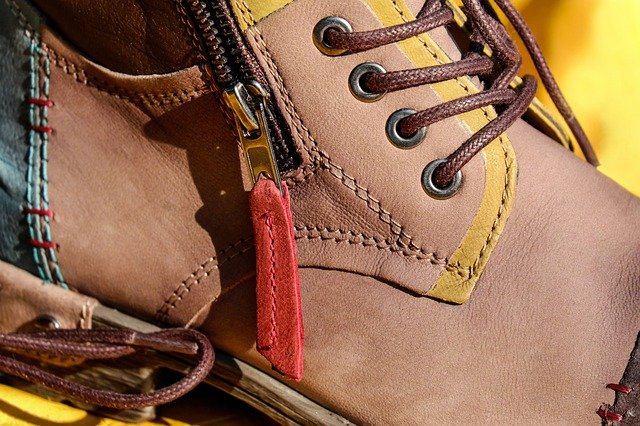Buying a Repo Pontoon Boat: A Practical Guide to Finding, Inspecting, and Purchasing
Repossessed pontoon boats offer an opportunity to purchase watercraft at potentially reduced prices, but they require careful consideration and thorough inspection. These vessels become available when previous owners default on loans, creating a secondary market that can benefit informed buyers. Understanding the process, knowing where to look, and conducting proper due diligence are essential steps for anyone considering this purchasing route.

Purchasing a repossessed pontoon boat can be an excellent way to enter the boating world or upgrade your current vessel at a more affordable price point. However, this market requires specific knowledge and careful navigation to ensure you make a sound investment. The repossession process creates unique opportunities and challenges that differ significantly from traditional boat purchases.
Understanding repossessed pontoon boats: risks, benefits, and what to expect
Repossessed pontoon boats enter the market when financial institutions or lenders reclaim vessels due to payment defaults. These boats often sell below market value as lenders prioritize quick recovery of outstanding loan amounts rather than maximizing sale prices. The primary benefit lies in potential cost savings, sometimes ranging from 20-40% below comparable retail prices.
However, significant risks accompany these opportunities. Repossessed boats may have maintenance issues, as owners facing financial difficulties often defer necessary upkeep. Additionally, you typically cannot test drive the vessel before purchase, and detailed maintenance records may be unavailable. Some boats might have been neglected, stored improperly, or even deliberately damaged by frustrated former owners.
Where to find repo pontoon boats for sale: auctions, dealers, and online sources
Several channels offer access to repossessed pontoon boats. Bank auctions represent the most direct source, where financial institutions sell reclaimed assets. These events occur regularly, often advertised in local newspapers or bank websites. Government auctions also feature repossessed vessels from various agencies.
Specialized repo dealers maintain inventories of reclaimed boats, offering more conventional purchasing experiences with some buyer protections. Online platforms like BoatTrader, Boats.com, and auction sites frequently list repossessed vessels. Marine lending companies sometimes sell directly to consumers, while some traditional boat dealers maintain repo sections alongside their regular inventory.
Inspecting condition: essential hull, engine, and trailer checks
Thorough inspection becomes critical when purchasing repossessed pontoon boats. Begin with the pontoons themselves, checking for dents, corrosion, or punctures that could affect buoyancy. Examine welds and joints for cracks or separation. The deck should be solid without soft spots indicating water damage or structural issues.
Engine inspection requires particular attention. Check fluid levels, looking for contamination or unusual colors. Examine the lower unit for damage, and inspect the propeller for bent blades or missing pieces. Electrical systems need testing, including lights, gauges, and starting mechanisms. If a trailer is included, verify tire condition, bearing integrity, and proper lighting functionality.
Verifying title, liens, and legal paperwork before you buy
Legal documentation verification prevents future complications. Ensure the seller possesses clear title to the vessel and can legally transfer ownership. Request a lien search through your state’s boat registration authority to confirm no outstanding debts remain attached to the vessel.
Verify the hull identification number matches all documentation. Some states require bill of sale forms or specific transfer procedures. Consider purchasing title insurance for valuable vessels, and confirm registration requirements in your state before completing the transaction.
Pricing, negotiation, financing and post-purchase steps
Understanding market values enables effective negotiation and informed decision-making. Research comparable pontoon boats in your area using online resources and dealer listings. Consider the vessel’s age, condition, and included equipment when establishing fair market value.
| Purchase Source | Typical Savings | Average Price Range | Financing Options |
|---|---|---|---|
| Bank Auctions | 25-40% below retail | $8,000-$35,000 | Cash only typically |
| Repo Dealers | 15-30% below retail | $10,000-$40,000 | Financing available |
| Online Platforms | 20-35% below retail | $7,500-$45,000 | Varies by seller |
| Direct Lender Sales | 20-30% below retail | $9,000-$38,000 | Sometimes available |
Prices, rates, or cost estimates mentioned in this article are based on the latest available information but may change over time. Independent research is advised before making financial decisions.
Negotiation strategies vary by purchase method. Auction environments limit negotiation opportunities, while dealer purchases allow more traditional bargaining. Cash purchases often yield better prices, though financing may be available through some sellers or third-party lenders.
Post-purchase steps include immediate insurance coverage, proper registration with marine authorities, and comprehensive mechanical inspection by qualified technicians. Schedule any necessary repairs promptly, and establish regular maintenance schedules to protect your investment. Consider joining pontoon boat owner groups for ongoing support and advice.
Purchasing a repossessed pontoon boat requires patience, research, and careful inspection, but can result in significant savings for informed buyers. Success depends on understanding the unique aspects of this market, conducting thorough due diligence, and preparing for potential additional costs related to repairs or improvements.




